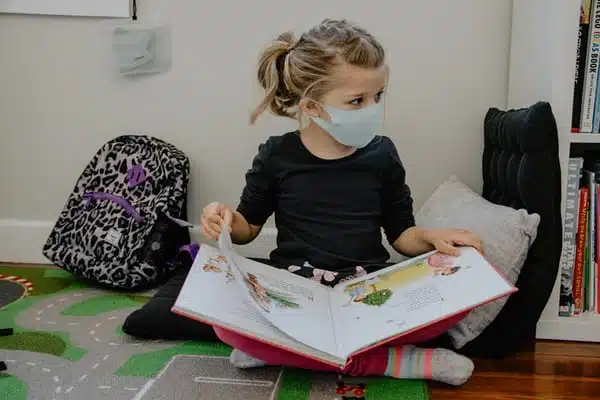The mental health and wellbeing of children and young people is still being affected by the COVID-19 pandemic a year after the first lockdown struck, suggesting the virus will leave a long-lasting legacy of mental ill health, Barnardo’s has warned.

England went into lockdown in March 2020, but a poll by the children’s charity has found that anxiety and poor mental health and wellbeing of children in Britain is still worsening a year on.
“Barnardo's has consistently warned that the negative effects of the pandemic could last a lifetime if children and young people don't have the right support. Our survey adds further weight to the argument that children must be front and centre of the government’s plans for the post-Covid period,” said Javed Khan, chief executive of Barnardo's.
A YouGov poll for Barnardo’s asked more than 4,000 children and young people aged eight-24 across the UK about how they were feeling now compared to before the pandemic.
The survey revealed:
- More than half of 16 to 24-year-olds surveyed said they were feeling stressed (58%)
- 54% said they felt worried
- 52% said they felt sad
- 56% felt lonely, more now than before the coronavirus pandemic.
The number of 16-24-year-olds reporting struggling with their mental health and wellbeing has increased from last year suggesting mental health and wellbeing has worsened despite the recent positive news about the vaccine rollout and the lifting of restrictions.
The amount of young people feeling stressed had risen from 43% last year before the pandemic to 58%. While 48% of young people felt lonely last year, that figure has risen to 56% and in 2020 48% felt worried whereas this year54% felt worried. The poll revealed that 46% of young people reported feeling sad last year but this has risen to 52%.
Feeling lonely or isolated was also one of the hardest things 16-24-year-olds found about the Covid-19 restrictions, with a third (33%) choosing it as one of their top three options. Not seeing friends (45%) and spending too much time online or in front of a screen (26%) also made the top three.
The issue this age group is currently most concerned about because of the pandemic is their mental health - the top answer out of 14 options chosen by 37% of respondents, up from 26% last year.
Barnardo’s surveyed children and young people as part of its Big Conversation which began during the first wave of Covid to gauge how children were coping during lockdown.
The majority of 16-24-year-olds who are enrolled at school, college or university were happy to be back in face-to-face education (56%), but they said they need more time helping them to cope with anxiety. Few young adults aged 16 to 24 reported feeling less stressed (9%), less worried (8%), less sad (10%) and less lonely (11%) now than before the coronavirus pandemic.
While younger children were less affected by the pandemic, almost a third of eight-15-year-olds said they were experiencing feeling stressed and worried more now than before coronavirus. Only 16% of children aged 8 to 15 reported they were experiencing these respective feelings less now than before the coronavirus pandemic.
The two issues this younger group was most worried about because of coronavirus were being behind in their studies and catching or spreading the virus – with 26% of children surveyed choosing these options.

"The pandemic and repeated lockdowns have been hugely traumatic for children, with months away from school, separation from friends and relatives, anxiety about the virus and financial pressures at home are taking a serious toll on their mental health. Added to that are concerns about their current and future job prospects.," said Javed Khan
“Given children’s exposure to unprecedented levels of trauma, loss and adversity during the pandemic, schools should all be providing support with mental health and wellbeing and 'summer classes' must not just be about academic catch-up, but also about giving children space to play, re-connect with friends and build their resilience.
“We need a radically different approach to improving outcomes for the ‘lockdown generation’ – including longer term thinking and funding, with a strong focus on stepping in early to support children and young people before they reach crisis point,” he concluded.

